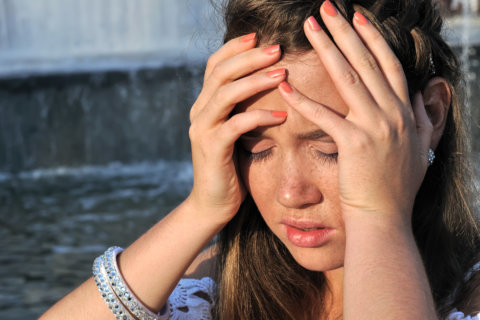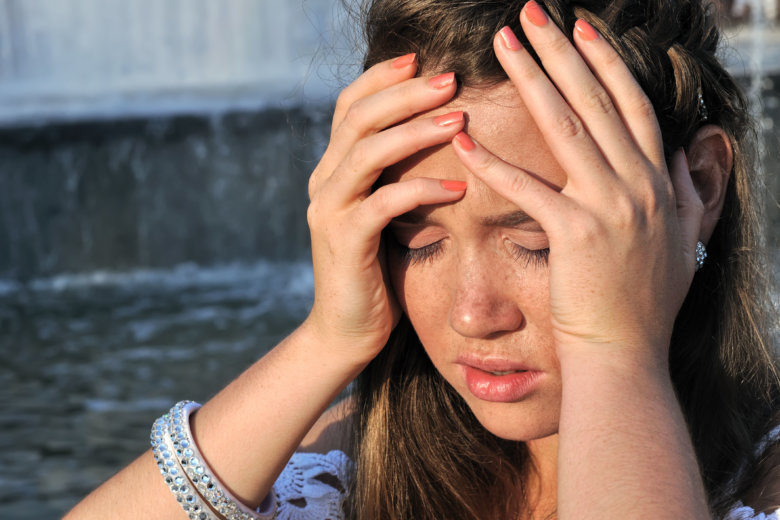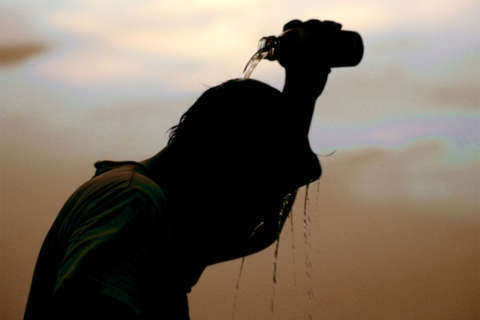
WASHINGTON — With temperatures in the mid 90s expected coupled with high humidity and air quality alerts, spending time outdoors can be unpleasant during the summer months.
Add exertion — from exercise or work — and the equation raises the risk of severe heat-related illnesses.
Doctors at the Mayo Clinic say exercise in hot weather puts extra stress on the body, since exercise itself and the air temperature can increase your body core temperature.
To help cool itself, your body sends more blood to circulate through your skin, which leaves less blood for muscles, which raises your heart rate. With high humidity, your body faces extra stress because sweat doesn’t easily evaporate from your skin, pushing your body temperature even higher.
Researchers at the Mayo Clinic say the heat-related illnesses occur along a spectrum:
- Heat cramps: In the heat, painful muscle contractions and spasms can occur with exercise. Affected muscles may feel firm to the touch. Body temperature may be normal.
- Heat syncope and exercise-associated collapse: Symptoms include feeling lightheaded or fainting caused by high temperatures, often after standing for a long time or standing quickly following a long period of sitting. The condition can occur if you suddenly stop running after substantial period, and stand.
- Heat exhaustion: Body temperature can rise as high as 104 degrees, and may be accompanied by nausea, vomiting, weakness, headache, fainting, sweating and cold, clammy skin. If left untreated, heat exhaustion can progress to heatstroke.
- Heatstroke: The most serious of heat-related illnesses. Body temperature is greater than 104 degrees — skin can be dry from lack of sweat, or moist. Mayo doctors say patients may exhibit confusion, irritability, headache, heart rhythm problems, dizziness, fainting, nausea, vomiting, visual problems and fatigue. A patient requires immediate medical attention to prevent brain damage, organ failure or death.
If you develop any symptoms of heat-related illnesses, you must lower your body temperature and get hydrated immediately. Doctors say you should stop exercising, get out of the heat, and if possible have someone stay with you to monitor your condition.
To head-off heat-related illnesses, drinking plenty of fluids is essential, to allow your body to sweat and cool down. Sports drinks can replace the sodium, chloride and potassium lost through sweating. Don’t wait until you’re thirsty to begin drinking fluids.
Dressing appropriately can help. Lightweight, light-colored, loose clothing and a hat can make you feel more comfortable, if a swimsuit in a cool pool isn’t an option.








